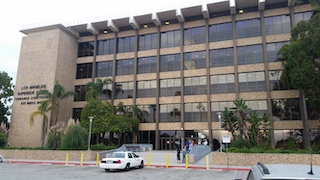Some convicted sex offenders will have ten-year registration requirements (“Tier One” registrants), others twenty years (Tier Two registrants), while some of the most serious offenders (Tier Three registrants) will remain obligated to register for life. Senate Bill 384 also, commencing January 1, 2022, revises the criteria for exclusion from the Internet web site listing registered sex offenders under Megan’s Law. Third, the new bill imposes new registration time limits of five and ten years for some of the least serious, non-violent sex offenses.
Generally speaking, SB384 refocuses the sex offender registry on high-risk offenders. California was long overdue for such an overhaul. It is currently only one of four states that requires lifetime sex offender registration for all sex offenders. The other three states still requiring this are Alabama, South Carolina and Florida.
The effects of being a registered sex offender are hugely stigmatizing. The registry can be checked online by the public, including employers, real estate agents, schools, landlords and community organizations reviewing a potential coach, scout leader or volunteer.
Existing law requires those convicted of specified sex offenses and certain acts of human trafficking for purposes of committing various sex offenses or extortion, to register with local law enforcement while residing in California or while attending school or working here.
Willful failure to register is a felony or a misdemeanor, depending on the underlying offense.
Those who currently must register must wait until July 1, 2021, almost four years from now, to seek relief. Offenders in Tier 1 or Tier 2 can then file petitions to be removed from the registry. Such offenders must have been released from prison for at least ten years or twenty years, respectively, before filing such a petition. Those who are in Tier 3 cannot seek relief from the order to register for life.
The petition will be reviewed by a judge, with input by the local prosecutor, who can then grant or deny the petition. Such petitioners may be those convicted of low-level, non-violent sex offenses.
Under the new law, a Tier 1 offender is subject to registration for a minimum of ten years after being released from prison or completing probation. Such a person is one convicted of sex offense that is a misdemeanor or felony that was neither serious or violent.
A Tier 2 offender is subject to registration for a minimum of twenty years after being released from prison or completing probation. Such a person may be convicted of a sex offense listed under 667.5(c) or 1192.7(c), 286(g) or (h), 288(a), 285(g) or (h), 289(b) or 647.6 if it is a second or subsequent conviction. These offenses include rape by deception as well as lewd and lascivious behavior with a child under 14, a common offense we see prosecuted frequently.
A Tier 3 offender is anyone convicted of a registrable offense who then commits another sex offense or commits a violent felony as listed under Penal Code § 667.5(c) in connection with a sex offense, or the person is committed to a state mental hospital as a sexually violent predator or commits any of the most serious and violent offenses involving sex offenses.
We see SB384 as an appropriate way to manage sex offenders depending upon the type of crime committed. The “one size fits all” lifetime obligation very often does not fit and it quite punishing although the state insists it is mere regulation for public safety, which is merely a pretext for unnecessary harassment.
For more information about being a registered sex offender, please click on the following articles:
- What Convictions Require Registration As a Sex Offender under Penal Code § 290?
- Conviction Related to Sexting Properly Required Sex Offender Registration
- Appellate Court Denies Equal Protection Challenge of Lifetime Sex Offender Registration Requirement for Possession of Child Pornography.
Contact us.  Torrance Courthouse
Torrance Courthouse